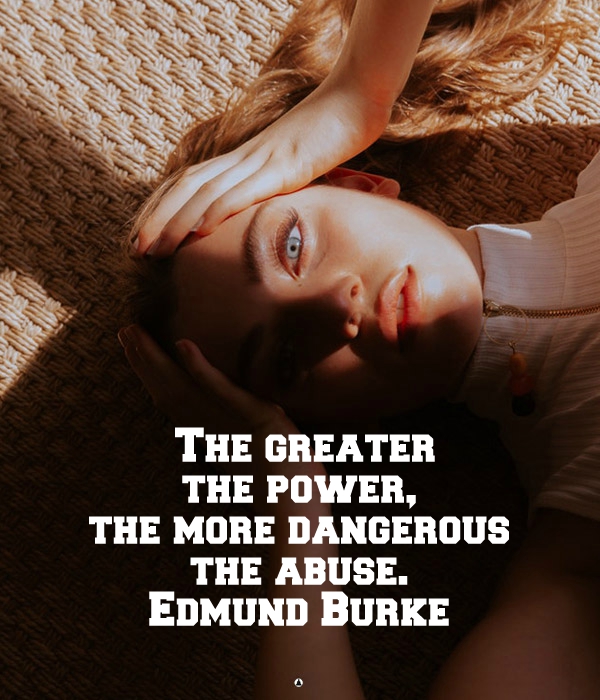“Sticks and stones may break our bones, but words will break our hearts.” – Robert Fulghum
Why is it that, as a culture, we tend to think if you’re not bleeding or physically maimed, you’re not really hurt? Most people fail to realize that disrespecting, insulting, and yelling at someone can cause them considerable damage.
We tend to overlook this form of abuse and think it’s not a big deal, but it is. In fact, the impact can be as bad or even worse as that of physical abuse. Many studies have shown that verbally abusing someone causes the victim emotional and psychological distress, damaging their self-esteem. All of the stress and psychological pain that accumulate over time eventually result in the development of a mental disorder, out of which anxiety is the most common.
Whether it’s real-life bullying or cyberbullying, whether it’s subtle or direct, and whether the person has been verbally abused as a child or later in life, any form is dangerous and it can cause a permanent and detrimental damage to the overall mental development of a person.
So, if you have that bad habit of speaking harshly to the people you love and others who are not close to you as well, you might want to take a look at the following few examples of the harm you can cause:
Short-term effects:
-Overanalyzing
-Low self-esteem and lack of enthusiasm
–Impaired decision-making capacity
-Having difficulty communicating
Long-term effects:
-Anxiety
-Migraines
-Chronic pain
-Eating disorders
-Depression
-Suicidal thoughts
Now, let me be honest with you.
The hard part about verbal abuse is that it can be subtle. It can be more difficult for someone suffering from verbal abuse to recognize the root of the cause, and they’ll commonly blame themselves for the verbal attacks.
So, in case you’re a victim of verbal abuse, it crucial for you to be able to recognize the signs of it and prevent it from interfering with your life, relationships, and work, and most importantly from causing you to develop anxiety.
Here are 9 indicators of verbal abuse:
1. Name calling.
Verbal abusers use name calling to instill fear in you so as to manipulate you into doing what they think is right and, of course, to control you.
2. Where no one can see.
Many people are being verbally abused where people can’t see. The reason for this is that the abuser knows that if the victim is alone, it’ll be much easier for them to manipulate him/her, and other people will neither know nor criticize their shameful actions.
However, the verbal abuse which happens behind closed doors is as harmful to a person’s health as the one which occurs in public places.

3. Unappreciation.
People who verbally abuse others never appreciate the victim’s hard work and achievements. You can try hard to do better and be better, but the abuser will never think that what you’re doing is good enough.
Moreover, they’ll give their best to make you believe the same, thereby undermining your self-esteem and making you feel unworthy.
4. Attacking a person’s interests.
People who verbally abuse others usually attack the things the victim loves to do. The abuser will never be interested in your hobbies and interests and he/she will undermine them whenever they have the chance. And if you let their harmful words get to you, you may start feeling ashamed of your interests and never talk about them to other people.
5. Spoiling a person’s happiness.
When someone feels good and shows they’re happy, abusers feel like they’re losing control. So, if they notice you’re happy or excited, they’ll use the moment to bring you down and sabotage your happiness. In this way, they’ll achieve their goal to make you feel bad and even unworthy, and to make themselves look and feel superior to you.
6. Abusers are always right.
They think they don’t have any faults and they’re better than everyone else. They’ll never admit or apologize for their mistakes and wrongdoings. And the most annoying thing they do is acting as if they’re always right about everything with no exception.
7. Blaming.
People who tend to verbally abuse others will blame you for everything that goes wrong, whether you’re involved or not. They’ll use any opportunity they have to accuse you of doing things they’re guilty of so as to avoid taking responsibility themselves.
If you don’t know how to stop these blame games, this can considerably lower your self-esteem and you may even start thinking that it’s really your fault.

8. Hurtful words disguised as jokes.
“You think you are so precious, don’t you?” is just one of the many “well-meaning” words verbal abusers can say to you. They’ll use bitter, cruel words to bring you down and hurt your feelings on purpose, and then, they’ll quickly add they were only joking or weren’t being serious.
9. The victim starts to isolate themselves.
It’s very common for victims of verbal abuse to isolate themselves from other people. They avoid socializing and being around people in order to keep themselves safe from abuse. The reason behind this is that they have low self-esteem and this makes them feel quite uncomfortable and anxious when around people.





